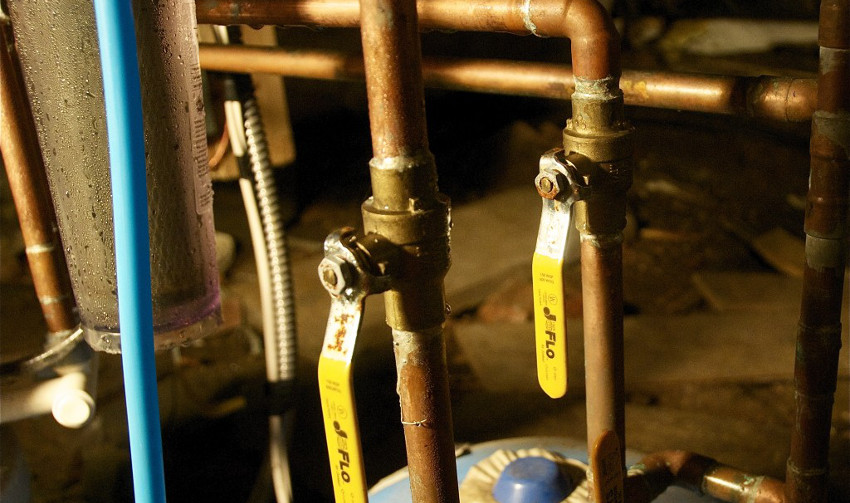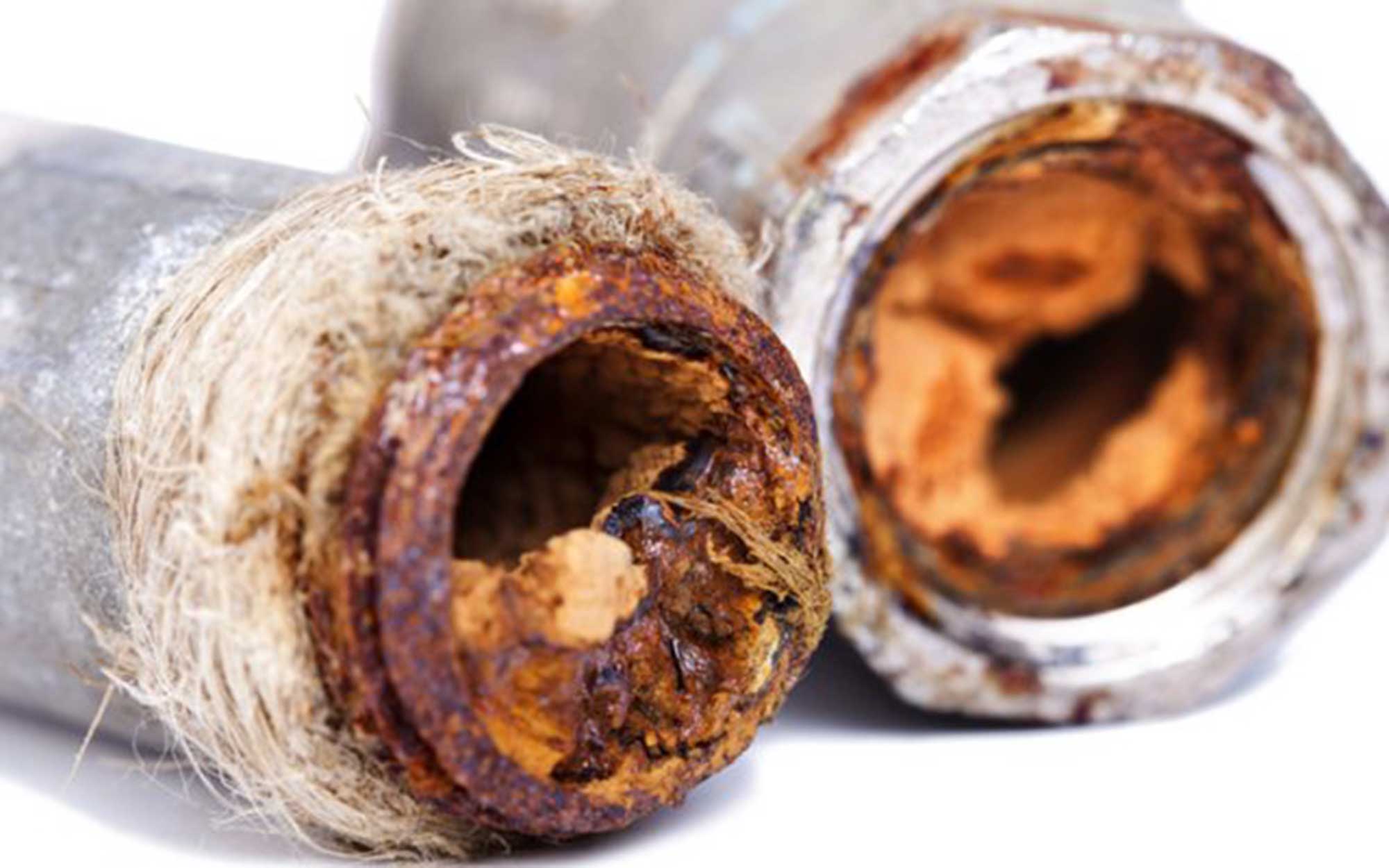Home Appliance Concerns: When To Seek a Plumber's Help for Typical Problems
Home Appliance Concerns: When To Seek a Plumber's Help for Typical Problems
Blog Article
This post down below relating to Why Your Water Pipes Are Noisy and How To Shut Them Up is totally interesting. You should investigate it.

To identify loud plumbing, it is very important to figure out very first whether the unwanted sounds occur on the system's inlet side-in other words, when water is transformed on-or on the drainpipe side. Sounds on the inlet side have actually varied causes: excessive water pressure, worn shutoff and also tap components, incorrectly linked pumps or other appliances, inaccurately positioned pipe fasteners, and plumbing runs containing way too many limited bends or various other limitations. Noises on the drain side generally originate from bad place or, as with some inlet side sound, a format consisting of tight bends.
Hissing
Hissing noise that takes place when a tap is opened somewhat typically signals excessive water stress. Consult your regional water company if you presume this issue; it will have the ability to inform you the water pressure in your location as well as can install a pressurereducing shutoff on the inbound supply of water pipe if required.
Other Inlet Side Noises
Squeaking, squeaking, scratching, breaking, as well as tapping generally are triggered by the expansion or tightening of pipes, generally copper ones providing warm water. The audios happen as the pipelines slide versus loose bolts or strike close-by house framework. You can often determine the place of the trouble if the pipelines are exposed; simply follow the audio when the pipes are making sounds. Probably you will find a loose pipeline hanger or a location where pipes lie so near floor joists or various other framing items that they clatter against them. Affixing foam pipe insulation around the pipelines at the point of get in touch with need to fix the trouble. Make sure bands and hangers are safe and secure and supply ample support. Where possible, pipeline fasteners ought to be affixed to massive structural components such as structure walls rather than to mounting; doing so lessens the transmission of vibrations from plumbing to surface areas that can amplify and also transfer them. If attaching bolts to framework is inevitable, cover pipelines with insulation or other resilient product where they speak to bolts, and sandwich the ends of new bolts in between rubber washing machines when installing them.
Dealing with plumbing runs that experience flow-restricting limited or countless bends is a last option that needs to be undertaken only after getting in touch with a competent plumbing specialist. However, this scenario is fairly usual in older houses that may not have actually been constructed with interior plumbing or that have seen several remodels, particularly by beginners.
Babbling or Screeching
Intense chattering or shrieking that happens when a valve or faucet is switched on, and that normally vanishes when the installation is opened completely, signals loosened or faulty interior parts. The service is to replace the valve or tap with a brand-new one.
Pumps and appliances such as washing devices as well as dishwashing machines can transfer motor sound to pipelines if they are incorrectly attached. Connect such products to plumbing with plastic or rubber hoses-never stiff pipe-to isolate them.
Drainpipe Noise
On the drain side of plumbing, the chief goals are to get rid of surfaces that can be struck by falling or rushing water as well as to protect pipes to include inevitable noises.
In new building, tubs, shower stalls, bathrooms, as well as wallmounted sinks as well as basins should be set on or against resilient underlayments to reduce the transmission of sound through them. Water-saving commodes and also taps are much less loud than traditional designs; install them instead of older types even if codes in your location still allow making use of older components.
Drainpipes that do not run vertically to the basement or that branch into horizontal pipe runs supported at floor joists or various other mounting existing especially troublesome sound troubles. Such pipelines are big enough to emit substantial resonance; they likewise carry significant quantities of water, which makes the situation even worse. In brand-new building, specify cast-iron dirt pipelines (the big pipes that drain pipes bathrooms) if you can afford them. Their massiveness has much of the noise made by water travelling through them. Likewise, prevent routing drains in walls shared with rooms as well as rooms where individuals collect. Walls containing drains should be soundproofed as was defined previously, using dual panels of sound-insulating fiber board and wallboard. Pipelines themselves can be wrapped with special fiberglass insulation produced the purpose; such pipelines have an invulnerable vinyl skin (occasionally including lead). Outcomes are not always acceptable.
Thudding
Thudding sound, typically accompanied by shuddering pipelines, when a faucet or device valve is switched off is a condition called water hammer. The sound as well as resonance are triggered by the resounding wave of stress in the water, which suddenly has no area to go. In some cases opening up a valve that releases water rapidly right into a section of piping having a restriction, joint, or tee fitting can generate the same problem.
Water hammer can usually be healed by installing installations called air chambers or shock absorbers in the plumbing to which the trouble valves or taps are attached. These gadgets permit the shock wave created by the halted flow of water to dissipate airborne they include, which (unlike water) is compressible.
Older plumbing systems might have short upright areas of capped pipe behind wall surfaces on tap runs for the very same purpose; these can ultimately fill with water, minimizing or destroying their efficiency. The cure is to drain the water supply completely by turning off the major water supply valve and also opening all faucets. After that open up the main supply valve and also shut the faucets one by one, beginning with the faucet nearest the valve as well as finishing with the one farthest away.
3 Most Common Reasons for Noisy Water Pipes
Water hammer
When water is running and is then suddenly turned off, the rushing liquid has no place to go and slams against the shut-off valve. The loud, thudding sound that follows is known as a water hammer. Besides being alarming, water hammer can potentially damage joints and connections in the water pipe itself. There are two primary methods of addressing this issue.
Check your air chamber. An air chamber is essentially a vertical pipe located near your faucet, often in the wall cavity that holds the plumbing connected to your sink or tub. The chamber is filled with air that compresses and absorbs the shock of the fast moving water when it suddenly stops. Unfortunately, over time air chambers tend to fill with water and lose their effectiveness. To replenish the air chambers in your house you can do the following. Turn off the water supply to your house at the main supply (or street level). Open your faucets to drain all of the water from your plumbing system. Turn the water back on. The incoming water will flush the air out of the pipes but not out of the vertical air chamber, where the air supply has been restored. Copper pipes
Copper pipes tend to expand as hot water passes through and transfers some of its heat to them. (Copper is both malleable and ductile.) In tight quarters, copper hot-water lines can expand and then noisily rub against your home's hidden structural features — studs, joists, support brackets, etc. — as it contracts.
One possible solution to this problem is to slightly lower the temperature setting on your hot water heater. In all but the most extreme cases, expanding and contracting copper pipes will not spring a leak. Unless you’re remodeling, there's no reason to remove sheetrock and insert foam padding around your copper pipes.
Water pressure that’s too high
If your water pressure is too high, it can also cause noisy water pipes. Worse, high water pressure can damage water-supplied appliances, such as your washing machine and dishwasher.
Most modern homes are equipped with a pressure regulator that's mounted where the water supply enters the house. If your home lacks a regulator, consider having one professionally installed. Finally, remember that most plumbers recommend that water is delivered throughout your home at no lower than 40 and no greater than 80 psi (pounds per square inch).
Whatever the state of your plumbing, one thing is certain — you’re eventually going to encounter repair and replacement issues around your home that require professional help. That’s where American Home Shield can come to your aid.
https://www.ahs.com/home-matters/repair-maintenance/causes-of-noisy-water-pipes/

Do you appreciate reading about Why Do My Pipes Make Noises? Give feedback further down. We'd be interested to find out your feelings about this post. We hope that you visit us again soon. Make sure you set aside a second to distribute this post if you liked it. Thank you for taking the time to read it.
Explore Report this page